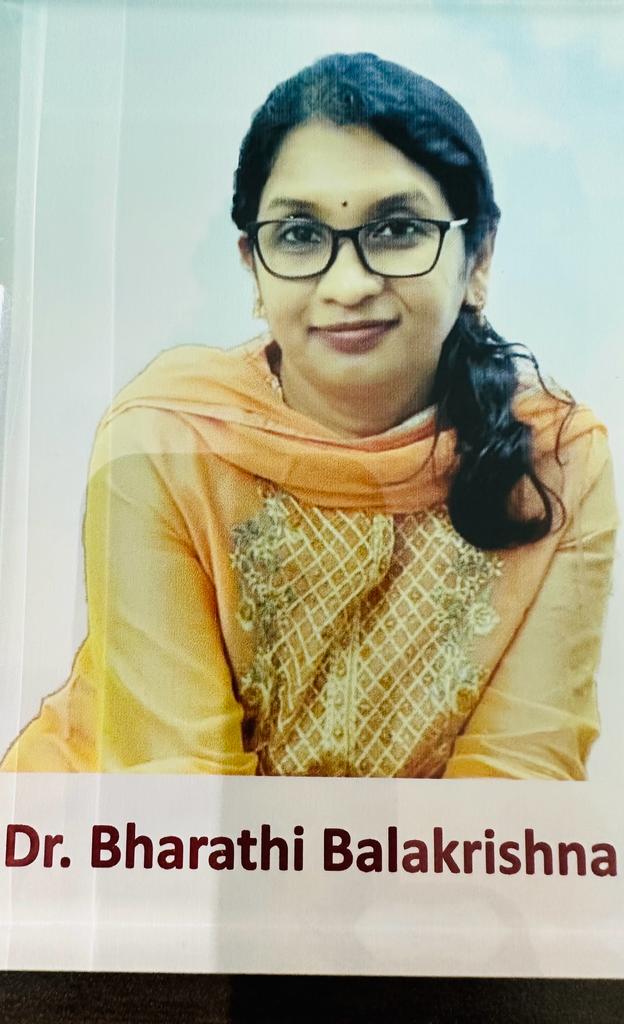How Much Vitamin D Do You Need To Increase AMH?
Find out the ideal vitamin D levels and dosage required to support healthy AMH (Anti-Müllerian Hormone) levels, improve fertility, and enhance ovarian function.

Written by Dr.Sonia Bhatt
Last updated on 3rd Jul, 2025

Introduction
Vitamin D plays a vital role in female reproductive health, particularly in supporting ovarian function and hormone regulation. Maintaining optimal levels of vitamin D may positively influence Anti-Müllerian Hormone (AMH) levels, which are key indicators of a woman’s fertility and ovarian reserve. Whether you're planning to conceive or looking to improve overall reproductive health, understanding the right amount of vitamin D your body needs can be a valuable step in enhancing AMH naturally and safely. In this article, we’ll learn about the role of vitamin D in increasing AMH.
Understanding AMH and Its Importance
AMH is a hormone produced by small follicles in your ovaries. Higher AMH levels generally indicate a better ovarian reserve, while lower levels may suggest diminished ovarian reserve (fewer eggs left). While AMH naturally declines with age, certain factors like stress, poor nutrition, or deficiencies (like Vitamin D) can impact it further.
The Link Between Vitamin D and AMH
Vitamin D isn’t just for bones. It plays a role in hormone regulation, including reproductive health. Research suggests that women with optimal vitamin D levels tend to have higher AMH levels compared to those who are deficient. This is because vitamin D receptors are found in ovarian tissue, influencing egg quality and hormone balance.
How Much Vitamin D Do You Need?
The right amount of vitamin D varies from person to person, but here’s a general guideline:
Normal Range: 30-100 ng/mL (blood test levels)
Deficiency: Below 20 ng/mL
Optimal for Fertility: Around 40-60 ng/mL
Recommended Daily Intake
The recommended daily intake for vitamin D is:
For Deficiency: Doctors may prescribe high-dose supplements (1000-5000 IU/day) for a short period.
For Maintenance: 600-2000 IU/day is commonly recommended, depending on your current levels.
Sunlight Exposure: 10-30 minutes of midday sun (without sunscreen) a few times a week can help.
Note: Always get your vitamin D levels checked before starting supplements to avoid toxicity.
Consult Top Obstetrician and Gynaecologist
How to Increase Vitamin D Naturally?
Boosting your vitamin D levels naturally can support overall health and potentially improve AMH levels and fertility. Here are effective ways to do it:
Sunlight Exposure: Spend 10–30 minutes in direct sunlight several times a week, especially during midday. Expose your face, arms, or legs without sunscreen for best absorption.
Vitamin D-Rich Foods: Include natural sources like fatty fish (salmon, mackerel, sardines), egg yolks, mushrooms exposed to sunlight, and fortified foods such as milk, orange juice, and cereals.
Maintain a Healthy Weight: Obesity can lower circulating vitamin D levels. Maintaining a healthy BMI helps improve how your body uses and stores vitamin D.
Limit Sunscreen Indoors: While sun protection is important, using sunscreen indoors or in low-sunlight areas can block vitamin D synthesis. Use it wisely depending on your exposure and environment.
Stay Active Outdoors: Incorporate outdoor walking, yoga, or gardening into your routine to increase sun exposure while staying physically active.
Other Ways to Support AMH Levels
While vitamin D plays a key role in supporting AMH levels, a holistic approach to reproductive health offers the best results. Consider these additional lifestyle strategies:
Balanced Diet: Include antioxidant-rich foods like berries, nuts, seeds, and leafy greens to combat oxidative stress and support hormonal balance.
Regular Exercise: Engage in moderate physical activity to improve blood circulation and support ovarian function.
Stress Management: Practise yoga, meditation, or deep breathing techniques to reduce cortisol levels, which can interfere with reproductive hormones.
Avoid Smoking & Excessive Alcohol: These habits can damage egg quality and negatively affect AMH levels and fertility.
When to See a Doctor?
If you're concerned about your fertility or suspect hormonal imbalances, it’s important to consult a healthcare professional. You should see a doctor if:
You're under 35 and have been trying to conceive for over a year or over 35 and trying for 6 months without success.
You have irregular periods, missed periods, or signs of early menopause.
Your AMH levels are low or declining based on recent blood tests.
You suspect a vitamin D deficiency or have symptoms like fatigue, bone pain, or frequent illness.
You’re considering supplements and want personalised advice on dosage and safety.
A doctor can guide you through appropriate testing, supplementation, and treatment options tailored to your reproductive health needs.
Conclusion
Optimising vitamin D levels may be a simple yet effective strategy to support AMH production and overall fertility health. While the recommended daily intake varies based on individual needs and existing deficiencies, most women benefit from maintaining vitamin D levels between 30 to 50 ng/mL. Incorporating sunlight exposure, dietary sources, and supplements as needed, under medical guidance, can help restore hormonal balance and improve reproductive outcomes. Always consult a healthcare professional before starting any supplementation plan to ensure safe and effective results.
Consult Top Obstetrician and Gynaecologist
Consult Top Obstetrician and Gynaecologist

Dr. Alapati Jyotsna
Obstetrician and Gynaecologist
4 Years • MBBS MS Obstetrics and Gynaecology
Visakhapatnam
Apollo 24|7 Clinic - Andhra Pradesh, Visakhapatnam

Dr. Shailaja L
Obstetrician and Gynaecologist
16 Years • MBBS, MS
Bangalore
Apollo 24|7 Clinic - Karnataka, Bangalore

Dr. Veena H
Obstetrician and Gynaecologist
16 Years • MBBS DGO
Bangalore
Apollo 24|7 Clinic - Karnataka, Bangalore

Dr. Bharathi Balakrishna
Obstetrician and Gynaecologist
31 Years • MBBS,MD (Obstetrics & Gynaecology)
Bengaluru
Sanjeevini Speciality Health Care & Diagnostic Center, Bengaluru

Dr. Ritika Khurana
Obstetrician and Gynaecologist
16 Years • MBBS, DGO(GYNAECOLOGY AND OBSTETRICS)
Pune
Dr Rupali and Dr Ritika, Pune
Consult Top Obstetrician and Gynaecologist

Dr. Alapati Jyotsna
Obstetrician and Gynaecologist
4 Years • MBBS MS Obstetrics and Gynaecology
Visakhapatnam
Apollo 24|7 Clinic - Andhra Pradesh, Visakhapatnam

Dr. Shailaja L
Obstetrician and Gynaecologist
16 Years • MBBS, MS
Bangalore
Apollo 24|7 Clinic - Karnataka, Bangalore

Dr. Veena H
Obstetrician and Gynaecologist
16 Years • MBBS DGO
Bangalore
Apollo 24|7 Clinic - Karnataka, Bangalore

Dr. Bharathi Balakrishna
Obstetrician and Gynaecologist
31 Years • MBBS,MD (Obstetrics & Gynaecology)
Bengaluru
Sanjeevini Speciality Health Care & Diagnostic Center, Bengaluru

Dr. Ritika Khurana
Obstetrician and Gynaecologist
16 Years • MBBS, DGO(GYNAECOLOGY AND OBSTETRICS)
Pune
Dr Rupali and Dr Ritika, Pune
Consult Top Obstetrician and Gynaecologist

Dr. Alapati Jyotsna
Obstetrician and Gynaecologist
4 Years • MBBS MS Obstetrics and Gynaecology
Visakhapatnam
Apollo 24|7 Clinic - Andhra Pradesh, Visakhapatnam

Dr. Shailaja L
Obstetrician and Gynaecologist
16 Years • MBBS, MS
Bangalore
Apollo 24|7 Clinic - Karnataka, Bangalore

Dr. Veena H
Obstetrician and Gynaecologist
16 Years • MBBS DGO
Bangalore
Apollo 24|7 Clinic - Karnataka, Bangalore

Dr. Bharathi Balakrishna
Obstetrician and Gynaecologist
31 Years • MBBS,MD (Obstetrics & Gynaecology)
Bengaluru
Sanjeevini Speciality Health Care & Diagnostic Center, Bengaluru

Dr. Ritika Khurana
Obstetrician and Gynaecologist
16 Years • MBBS, DGO(GYNAECOLOGY AND OBSTETRICS)
Pune
Dr Rupali and Dr Ritika, Pune